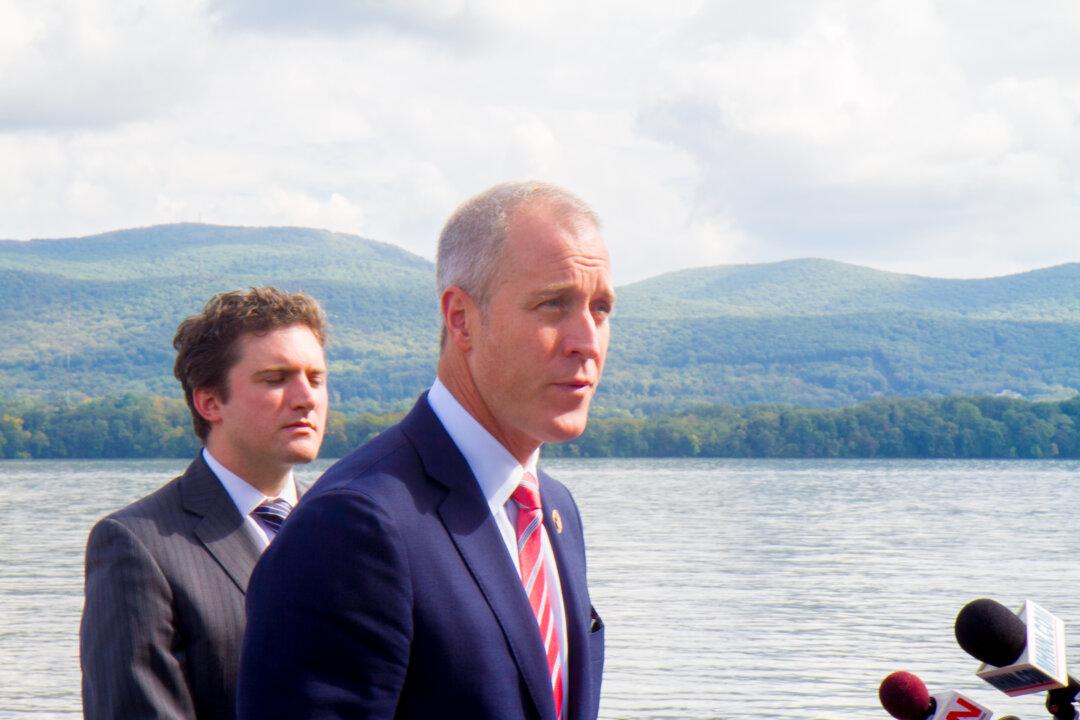NEWBURGH—Speaking on the banks of the Hudson River Oct. 3, Rep. Sean Patrick Maloney announced legislation he’s created that would limit the locations oil barges could anchor, saying it was an environmental, health, and economic threat to the area to have vessels with hazardous or flammable material on the river.
The legislation comes after the U.S. Coast Guard, at the request of trade industry groups, sought to put new anchorage grounds on the stretch of river between Kingston and Yonkers. This would allow “for a safer and more efficient flow of vessel traffic” the Coast Guard said in its rulemaking proposal.
Maloney and others argue that building more anchorage sites along the river would increase the capacity for such vessels, which would increase the likelihood of a spill or other accident, and could ruin the aesthetics of the river.
The legislation, called the Hudson River Protection Act, would prohibit new anchoring sites from being created within 5 miles of endangered species habitats, sites listed on the National Register of Historic Places, a nuclear power plant, or a superfund site, which covers the entire stretch from Kingston to Yonkers, Maloney said.
“The desire to expand these sites is predicated on the belief that we’re going to have large increases of crude moving down the Hudson River,” Maloney said. “But the compression in global oil prices—we have oil now at lower than $45 a barrel—has obviated the need for a lot of this infrastructure.”
In a letter to the Coast Guard, the Maritime Association of the Port of New York/New Jersey Tug and Barge Committee disagreed with that statement, saying the amount of crude oil the U.S. produces will only increase since the U.S. lifted a 40-year ban on American crude oil exports in January.





